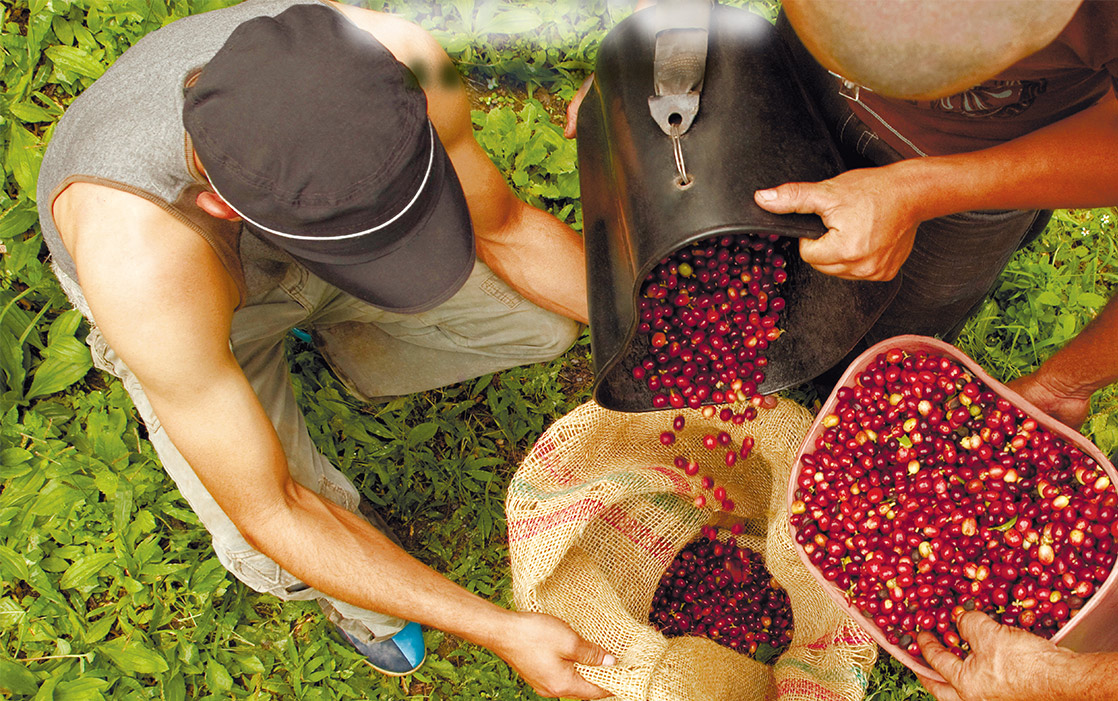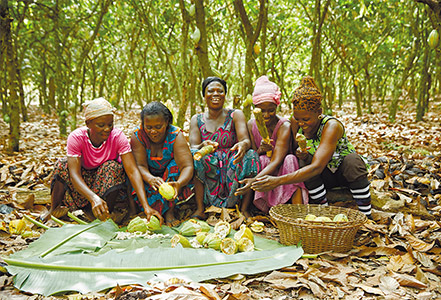Supporting Farmers and Ensuring Sustainability

Supporting Farmers and Ensuring Sustainability

Traceability
Traceability in the consumer products industries refers to the processes that enable us to to verify the products' histories. As far as foods are concerned, this means checking everything from the farming of raw materials (both plant and animal) to the processing, production and distribution of the finished products.
Nowadays, people of every generation are accustomed to things like chocolate and coffee, but how many of us stop to think about where these products come from? The next time you see a small child reaching happily for a piece of chocolate, remember that somewhere in the world, a child of similar age is probably reaching for the branches of a cocoa tree, for in many cases, they are the ones who harvest the beans.
Due to the harmful impacts that current farming practices can have on our natural environment, the United Nations' Food and Agriculture Organization (FAO) is advocating something called agroecology, which FAO describes as follows: “Agroecology is based on applying ecological concepts and principles to optimize interactions between plants, animals, humans and the environment while taking into consideration the social aspects that need to be addressed for a sustainable and fair food system.”
Is overwork denying farming communities opportunities for education and independence? Are farmers damaging the environment by trying to increase their harvests? In recent years, more and more consumers have started asking these kinds of questions, and we are growing more conscious of where and how our foods are produced and delivered to us. Some agricultural businesses that connect farmers with food manufacturers have even begun using digital technologies to monitor local farming practices and improve traceability. Movements are underway that not only are helping to integrate operations and improve efficiency, but are also resulting in more eco-friendly products.
If you look closely at the food products sold at your local grocery or convenience store, you might notice that more and more of them have environmental certifications on their labels, acknowledging that the products are made using environmentally friendly practices or materials, that they support, local smallholder farmers, and so on. Considering that the more we opt to buy such products the more we will be helping local producers and contributing to sustainable farming, our everyday decisions on what to eat and drink can have a big impact on the future of food.
Sustainably Delivering Great Taste To the World
With more consumers demanding products that are made with due attention to things like the natural environment and human rights, food manufacturers are being more careful about where they source their raw materials. In 2015, Mitsubishi Corporation entered into an alliance with Olam International, a leading food and agri-business company that has a strong track record when it comes to sourcing sustainable food raw materials.

This article appeared in Asahi Shimbun's “GLOBE” feature of October 6, 2019



